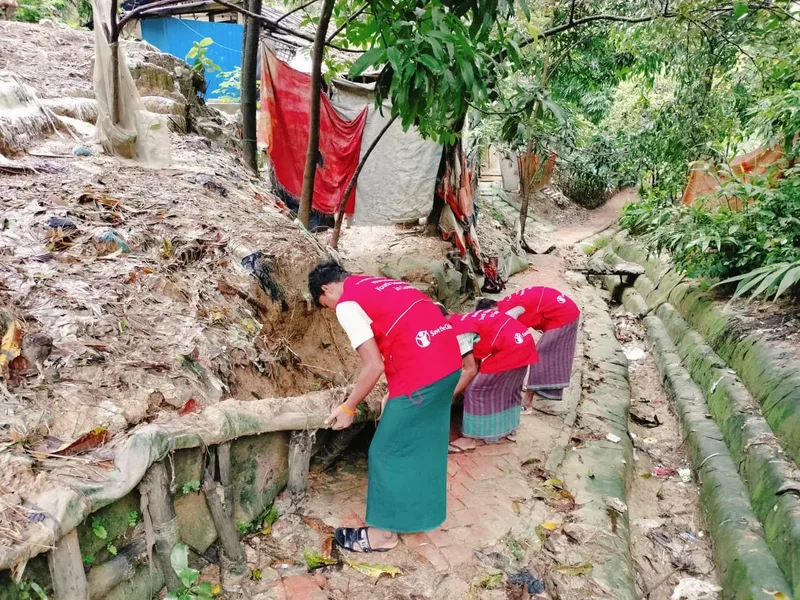Heroes Without Capes: Leading Change in Cox’s Bazar
In the world’s largest refugee settlement of Cox’s Bazar in Bangladesh, life for young people is anything but ordinary. Over one million Rohingya people, who are originally from Myanmar, live in overcrowded camps after fleeing violence and persecution. Many of these Rohingya refugees are young people who have spent most or all their teenage years in the settlement – cut off from formal education, job opportunities, and basic freedoms.
Amid these challenging conditions, three young men – Musa*, Hakim*, and Nobi* – are emerging as powerful agents of change.

As volunteers through Save the Children’s Nurturing of Youth in Camps (NYC) project, they have become role models within their community, offering guidance, safety, and hope. They help newly arrived refugees find shelter, respond to child protection risks, and take initiative to make improvements where systems have demonstrated weaknesses; helping to showcase that a strong community can be a superpower.
“People used to avoid me. Now they call me when they need help. That means everything,” says Musa, whose own journey in the camp began with uncertainty and mistrust, but now involves taking an active part in helping others in his community.

The three young men also help with development initiatives including caregiving, garbage collection and infrastructure repair.
For Nobi, who was once too shy to speak up, one of the first moments that stood out to him was when he led an evacuation during a fire. Since then, he has become known as the “camp messenger” – guiding new arrivals, assisting sick children, and bringing calm during moments of chaos with his quiet strength. Taking charge is no longer something he fears; it has become a part of who he is.
“During last year’s floods, I helped evacuate families to safer shelters and guided a mother in labor to get care. The look of relief on her face told me everything, I had done the right thing,” he says.
Like Musa, Hakim previously struggled with life in the camp, especially after the death of his father. “I stopped praying. I fought with people. I disrespected camp rules,” Hakim says. “But when I joined the NYC program, I met mentors who listened and showed me another way. I started attending awareness sessions and learned how we, as youth, can be protectors instead of troublemakers.”
A turning point for Hakim was when he saw a man trying to lure his younger cousin away. Hakim intervened and scared the man off by asking him questions and calling another community leader for support. Now he leads anti-trafficking awareness efforts around the camp and has earned himself the nickname Amodi Hakim, or “Hakim the Helper.”

For Musa, Hakim, and Nobi, “community as a superpower” is more than a project slogan; it defines their daily reality. They fill the gaps created by absent systems. They share food when supplies run low. They act when violence looms. Alongside other youth volunteers, they’ve created an informal safety net that extends well beyond their block in the camp.
Today, each of theme holds aspirations that once felt out of reach. Musa hopes to work for a humanitarian organization. Hakim wants to become a protection officer, mentoring boys who remind him of his former self. And Nobi dreams of training in community health, to ensure every child receives the support they need.
*Names changed.
